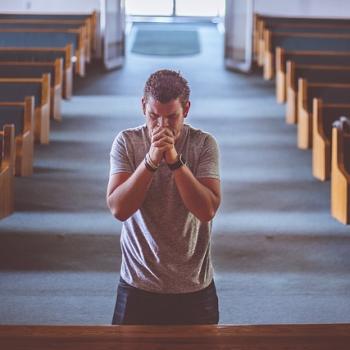I think we will also see the coziness dissipate between American evangelicalism and political conservatism. There will be a widening of the political agenda of evangelicals. It will include some more issues related to social justice, and priorities that have traditionally been debated by Democrats, while at the same time retaining the social conservatism that Republicans have advanced in recent decades.
As you know, James Davison's Hunter's recent book, To Change the World, has generated a great deal of discussion among the evangelical intelligentsia. Hunter assesses other models of cultural influence and finds them largely ineffective, and he advocates "faithful presence." Does that sound like the future of evangelical culture-shaping to you?
There's much I want to affirm in Hunter's work, and I think he's exactly right that the ways in which evangelicals have mobilized around political rhetoric have not in the end resulted in real cultural change. The strategies on both the evangelical Left and the evangelical Right have failed to do justice to the biblical principles that evangelicals really want to bring about in working for a more just society.
The importance of faithfulness, that Hunter raises, cannot be underestimated. The real temptation for any group that assimilates itself into wider culture is that it loses its distinctive identity. So the problem that most religious groups have in becoming a part of the mainstream identity, like, let's say, American Jews, is that they lose the things that make them distinctive. I would not want evangelicals to lose their evangelistic fervor, their commitment to the Bible, or their vision for how they can transform society for the Good. I don't want them to lose that. When "faithful presence" is the model, it's vital that people remember that you are actually present.
I don't think evangelicals can continue to practice the rhetoric that they are an embattled minority group, because they are not. It's a successful rhetorical strategy, but it's empirically invalid. Evangelicals are significant players on the national stage, and they are not some marginalized group that sits on the sidelines of American culture. That said, they will have to do more to build bridges and alliances with non-evangelicals than they have done in the past. The only way that they will actually bring about social change is through alliances and coalitions on particular issues. At the same time, my hope is that they will retain their distinctive evangelistic fervor, which has served them well over the last hundred years.
As far as building bridges and alliances, one way in which the Religious Right has been criticized, and now the Religious Left is open to critique, is for becoming overly implicated with a political party, or becoming apologists for the party in general and not just on the points that led you to form the alliance in the first place. Those who have allied with the Right or with the Left can, when that party is in power, become court prophets who merely tell the king whatever the king wants to hear. So how do you form coalitions in particular issues without becoming so beholden to the party that you lose the ability to speak prophetically over against it?
We have to establish a deep relational network that can withstand tension and disagreement. Evangelicals have not been very good at building relational bridges, meaning personal friendships with those in leadership positions who are outside the evangelical community. This is where there is a real possibility of improvement in the days ahead.
A wonderful study was done about twenty years ago about the Medici family in Renaissance Florence, published in the American Journal of Sociology. What the authors found was that the reason why the Medici family became so important was because they were the brokers between different kinds of networks. They were the hub around which different networks existed. The Medicis had influence because they knew and had deep relational capital with everyone.
There are evangelicals today who I think fit into that category, but they are few in number. What evangelicals have to do is build more of those kinds of relational networks that they can draw upon. Cultural change occurs at a very micro level in the right places. There's a real possibility here. It requires us to befriend practicing homosexuals, people with whom we disagree politically. It requires us to know people in Las Vegas and New York as well as we know people in Wheaton and Colorado Springs. It's that relational substrata that undergirds the ways in which power flows in our society, and evangelicals need to be more strategic about building these kinds of relational webs.
There seems to be a fair amount of mutual suspicion and misunderstanding, and sometimes even enmity, between liberal and conservative evangelicals. What can be done to foster greater understanding and mutuality of purpose?
The awakening of evangelicalism's political consciousness began in 1976, when Jimmy Carter publicly identified as a born again Christian. For the first time in modern political history, evangelicals had someone who was willing to publicly identify as one of them. The problem was that his party had a number of policies that ran counter to evangelical priorities, specifically abortion. Evangelicals did not feel that Carter's people stood up for their priorities, which was in fact the case. President Carter was a committed Christian, but all of his senior advisors were people who did not share his faith commitments. He largely drew from the Council of Foreign Relations, Trilateral Commission crowd to form his administration.





